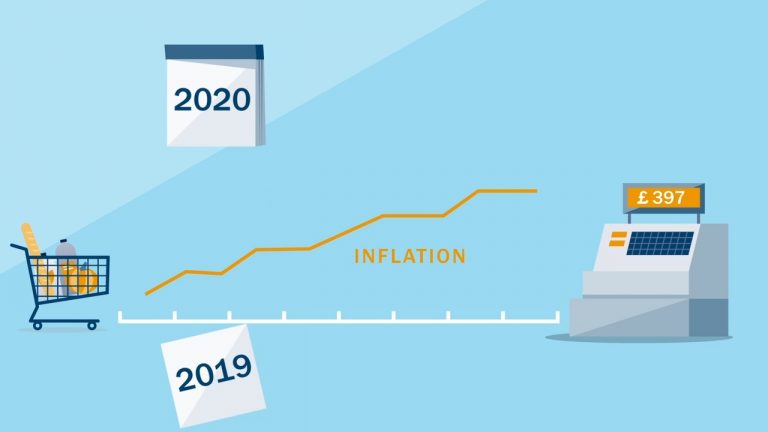The Global Smaller Companies Trust PLC
Annual General Meeting
The Company is holding its Annual General Meeting (AGM) on 30 July 2020. Due to current restrictions and social distancing measures this year’s AGM is restricted to the formal business of the meeting and will only be attended by the minimum number of members sufficient to form a quorum.
More information:
- Lead Manager’s AGM Presentation
- Frequently Asked Questions (FAQs)
- AGM Poll Voting Results
Lead Manager’s Presentation
Peter Ewins’ presentation focuses on the performance of the trust in 2019/20, the impact of COVID-19 on the markets, and how he and the investment team have been re-positioning the portfolio in the early part of the new financial year. Watch the video.

For more information, download the full presentation.

Peter Ewins is a Director and Portfolio Manager. He joined Columbia Threadneedle through the acquisition of BMO GAM (EMEA) in 2021, having previously been with BMO (and its predecessor companies) since 1996. Prior to this, he worked for Municipal Mutual Insurance and Commercial Union Insurance (1989-93) and ESN Pension Management (1994-96). Peter has a BA (Hons) in Economics and Statistics from the University of Exeter and is a member of the CFA Society of the UK.
Past performance should not be seen as an indication of future performance. The value of investments and income derived from them can go down as well as up as a result of market or currency movements and investors may not get back the original amount invested.
If you feel you need specific investment advice that takes your individual circumstances fully into account, please talk to a financial adviser.
Views and opinions have been arrived at by CT and should not be considered to be a recommendation or solicitation to buy or sell any companies that may be mentioned.
Frequently Asked Questions
The last financial year was a tough one for most investors and especially those in smaller companies given the economic slowdown that was occurring even before the coronavirus (COVID-19) took hold. The Company’s NAV ended the year down by 13.8% in total return terms, which was slightly better than the Benchmark’s fall of -14.1%. The Company’s share price total return for the year was -16.5% as a result of a widening of the discount.
We benefited from strong stock selection in North America and the UK, which was helpful as these are the two biggest parts of the Company’s overall portfolio. We were also helped in relative terms by asset allocation decisions to be overweight in Japan and to be underweight in the UK versus the Benchmark. One disappointment was the performance of our fund holdings in Japan which underperformed the local market. Being geared into the fall in markets late in the period was also detrimental to our returns.
Investment trust discounts are determined by the forces of demand and supply from investors in the stock market. With market conditions deteriorating, we saw more than the usual number of the Company’s shares being sold in the market and as a result the share price fell by more than the NAV. The Board seeks to control the discount by using share buybacks and over the year some 14.9m shares were bought back and held in treasury. Further share buybacks have been undertaken in the new financial year and the Manager has stepped up marketing activities with existing and potential new investors.
Income from the investment portfolio in recent years has been consistently strong, allowing the Board to increase the dividend steadily over time. With the arrival of COVID-19, the outlook for dividends from our own investments in the short-term has deteriorated with many companies cancelling payments or at least scaling them back. The Company however had £17.9m of revenue reserves in hand at the end of April 2020, which can be used, if the Board wishes, to support future dividend payments. Decisions on future payments will be made taking this and the outlook at the relevant time into account. The Board recognises the importance to shareholders of the dividend at a time of low interest rates.
The pandemic has obviously impacted the global economy massively and this has been felt across continents, countries, sectors and companies. Recognising the seriousness of the pandemic, the Manager took the decision in discussion with the Board to remove the gearing on the trust in early March 2020. At the same time, the investment team re-evaluated the outlook for all individual holdings on the portfolio, taking particular note of the financial strength of each company in light of the weaker outlook for profitability that most will face. In a limited number of cases, holdings were sold where the team no longer felt confident in that particular company’s financial strength and/or business outlook. We introduced some new holdings to the portfolio in companies with defensive attributes and also topped up or bought new holdings in several stocks where we felt the market had over-reacted to COVID-19. Pleasingly, there have been some opportunities to acquire holdings in stocks that the team has previously regarded as being too highly valued.
Allocations by market have not changed that materially in the recent period, with the pandemic clearly having a global impact. At present the Manager has retained overweight positions in Europe and Japan, while remaining underweight in the UK. Timely asset allocation decisions can add value and we will continue to keep the geographic skew of the portfolio under review in the light of geo-political developments. At the individual company level however, as global investors, we are more interested in the underlying quality and prospects of a company than where it is domiciled.
The Company gains exposure to Japanese and Rest of World (mainly Asian and Latin American) markets by investing in a concentrated list of third party managed collectives. These funds are managed by strong and well-resourced investment teams with good records in picking smaller company stocks in these markets, and over time using this approach has paid off for our investors. Holding a short list of the best such funds does mean that our holdings in these collectives will tend to appear near the top of the overall portfolio in terms of their size. Close to 80% of the Company’s portfolio however is invested in individual smaller companies listed in North America, the UK or Europe.
The Manager looks at each region differently based on its scale, using a higher market capitalisation cut off for example in the US compared to the UK. We do not automatically sell companies which perform well and become of a size that would not normally be regarded as being a smaller company. However, in such cases we will need to be confident that there is still upside to be had by retaining a holding. We want investors to mainly be exposed to the exciting growth potential that is often best found in the smaller companies sphere.
Global equity markets bottomed out in March and had rallied in April prior to the end of the 2019/20 year end in response to the huge policy interventions from governments and central banks. In the start of the new financial year this rally has continued, helped by the gradual easing of the lockdowns in Europe, the US and elsewhere. The Company’s portfolio has risen in value with our European stocks advancing the most, while there has been a less significant rally for the UK and Japanese holdings. Overall NAV performance is running slightly behind the Benchmark so far.
We have been through a period of dramatic volatility and, while the recovery in financial markets has continued into the start of the new financial year, there is uncertainty over the speed with which economies can rebound from the downturn. It is to be hoped that the huge monetary and fiscal reaction from central banks and governments can collectively support the recovery and there are signs that this is starting to feed into the economic data. We are expecting interest rates to remain near zero in most parts of the world which will support stock markets once again. Progress with a vaccine for COVID-19 could have a major impact on the markets and allow a speedier global recovery but we need to hope that, at the least, the pandemic remains under control in the months ahead especially in the key economies. Further lockdowns would undermine the recovery and create even larger fiscal policy challenges for the longer term.
We continue to assess the medium-term impacts of COVID-19 across sectors, and how this will or will not alter consumer and corporate behaviour going forward. We will also be watching political developments with the US election coming closer. The ongoing UK/EU trade negotiations and the geo-political tensions surrounding China will also be important to monitor.
As a smaller companies fund, the performance of the trust will continue to depend heavily on the quality of our stock selection. With a broadly spread portfolio, focused on companies with strong management teams, business models and balance sheets, we are optimistic for the medium-term, though remain alert to the near-term risks.